#Grendel's mother
Explore tagged Tumblr posts
Text
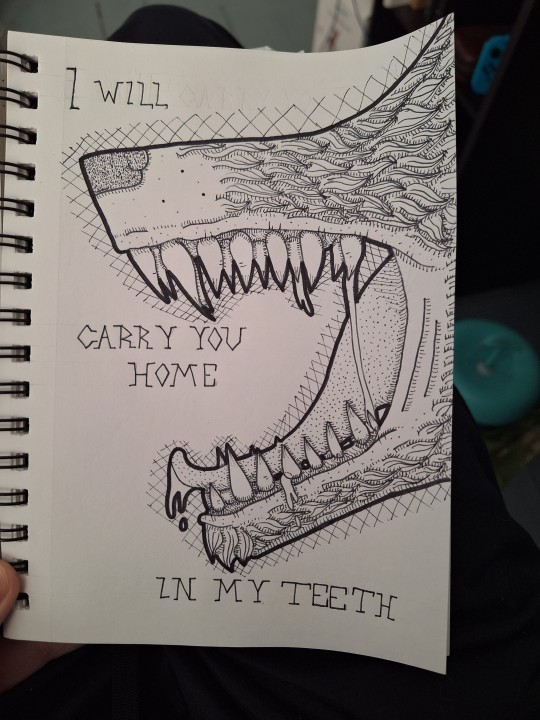
Been listening to The Mountain Goats again
#please ignore the offcenter lettering i did this in like an hour 😭#art#my art#the mountain goats#grendel's mother
162 notes
·
View notes
Text
The cave mouth shines By pure force of will I look down on the world From the top of this lonesome hill And you can run, and run some more From here all the way to Singapore But I will carry you home in my teeth In the great hall you drink red wine You chew meat off the bone I beat down the new path to the castle I come naked and alone I laid my son on the bier, I burned the wreath Fire overhead, water underneath You can stand up or you can run You and I both know what you've done And I will carry you home I will carry you home I will carry you home in my teeth
222 notes
·
View notes
Note
Grendel’s mother from Beowulf

Please reblog for a larger sample size.
An illustration of Grendel's mother by J. R. Skelton from the 1908 Stories of Beowulf.
37 notes
·
View notes
Text

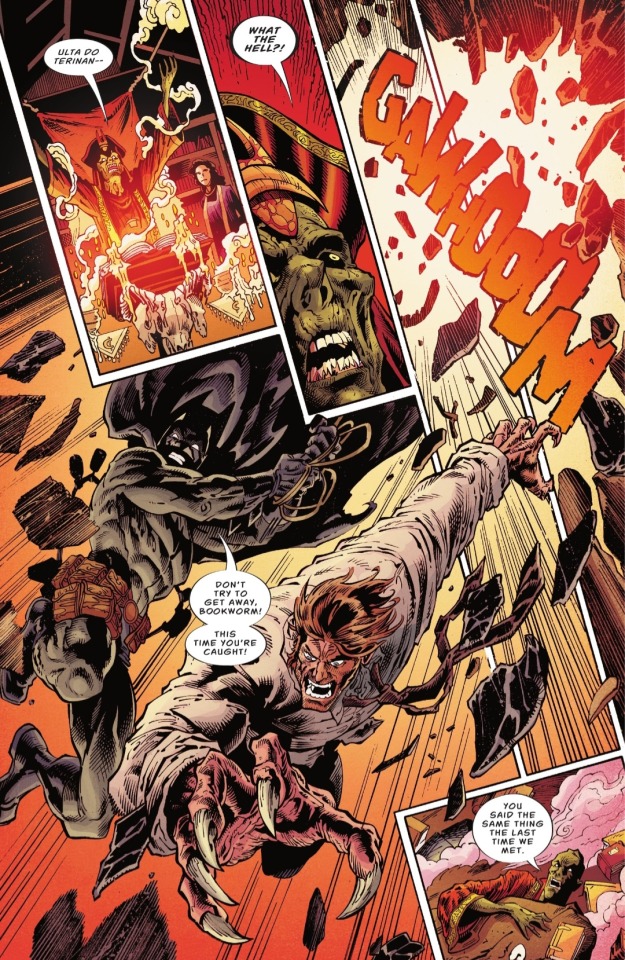






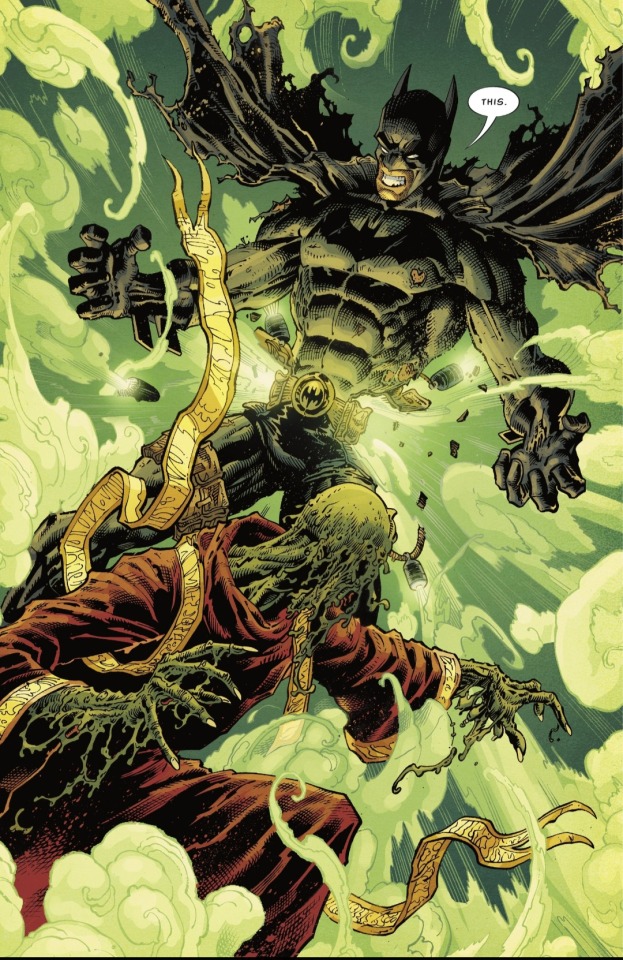

"I'm Robin the Boy Wonder. -Whereas I'm Robin, the even more wondruos Girl Wonder. And you're nicked. -Nicked? -What can I say? I'm a fan of british cop patois."
Batman Vs. Bigby! A Wolf In Gotham (2021). "Chapter Six: Wild Animals."
#dc comics#dc vertigo#vertigo comics#fables comics#fables the wolf among us#batman#bruce wayne#roberto#stephanie brown#dc robin#robins#bigby#bigby wolf#bookworm#frau totenkinder#mr stack#grendel's mother#dc universe#dc magic
28 notes
·
View notes
Text
Allow me to be utterly and completely in-character for a moment
I'm going to pluck Stella alive, slow-roast her with herbs and spices and feed her to my son
#helluva boss#cw disturbing imagery#Grendel's Mother#Cain#cain hazbin hotel#Cain's kin#Grendel#(in character) if youre a demon and a human and neither all at once#then eating humans OR demons is still cannibalism. which means both are allowed bc cannibalism is ok actually#Grendel's mom pov rambles
11 notes
·
View notes
Text
I will carry you home in my teeth
21 notes
·
View notes
Text
youtube
Hi all! My final project for college was this labor of love I spent about a year on. It's inspired by The Ninth Hour (https://www.ninthhourmusical.com/) which is criminally underrated.
Basically, it's a four minute long animated storyboard following Grendel post his final fight with Beowulf. I put a lot of work into it, and so please enjoy!
(Vocal performance by Shayfer James, lyrics by Shayfer James and Kate Douglas)
#the ninth hour#shayfer james#kate douglas#the ninth hour musical#beowulf#grendel#lullaby#grendel's lullaby#grendel's mother#animation major#my art#animatic#the met#musical theatre#Youtube
9 notes
·
View notes
Note
Why do people always ignore how Jon puts Gilly’s hand over fire while threatening to burn her and kill her baby, as well as the wildling children he kept as hostages ? But somehow he’s definitely the hero and Daenerys is the tyrant.
If Daenerys was threatening innocent mothers like this we’d never hear the end of it.
Jon later admits that he’d willingly kill the other wilding children he has hostage if it’s needed.
“You will make a crow of him.” She wiped at her tears with the back of a small pale hand. “I won’t. I won’t.” Kill the boy, thought Jon. “You will. Else I promise you, the day that they burn Dalla’s boy, yours will die as well.” — A Dance with Dragons, Jon II
People are more desensitized towards a man doling out violence, even (or esp) against women and children, abused or not. Violence or destroying boundaries is the way a man affirms and/or obtains authority and respect from his male peers and in this system, it literally gets romanticized as necessary for those he is in charge of or wishes to be or others perceive him to be: "greater good" and all that. Because they say that he had to do what he had to do...but then argue Dany is "proving" how evil or unstable she is if she were to do anything similar, and they already try to by saying her violence against raping, pedophilic, dehumanizing slavers was "too much"...think about it. They don't say similar about male prisoners raping pedophiles or those who hurt kids, they even openly wish for the pedos to get "roughed" up in their cells. Oh, but a teenager former bridal slave killing slavers is too much.
That been the exact opposite for when women dole out violence for similar or even just to defend themselves or others. you see female monsters and monstrous characters take on a particular pattern of being more...simple, inhumane in stories with male heroes through the history of Western literature, but esp so from Victorian literature, the society/era where us Westerners inherited most of our ideas of sexuality and gender roles/expression--from the bourgeoise class to the working.
I hope you and anyone reading looks up the "monstrous feminine" theory first elucidated by Barbara Creed: horror film both have women as needing to be victims so they don't materialize as "castrators" (unmanners) of men AND positions mothers near bestial matriarchal figures, as monstrous because of their primal maternal instincts and reproductive capabilities. Think Grendel's mother in Beowulf. All in all, it's about abjecting women and esp their passion, or trying to "explain" something innately terrifying about them that presents, sometimes, an eternal and necessary, order-affirming challenge to male heroes or masculinized heroes/perceptions.
Anyway, back to Jon. The issue is this double standard; even if Jon "had to do" what he did to Gilly (he didn't), why isn't it when there is a slew of enslaved people (that these people imagine as brown bc of GoT even though they are pretty diverse in ASoIaF but either way are not Westerosi or "Westerners"), then it's not that serious as to leave hundreds of slavers dying on poles along a path to a city the same way they did to the enslaved? Because Americans and white people of today's world already don't care that much about trafficking, slavery, etc. unless it happens to them of course. And Gilly was not a Westerosi, either, but a wilding whose only role is to be there so Jon and Samwell can do whatever to become better versions of themselves in their minds.
#asoiaf asks to me#jon snow#gilly#daenerys stormborn#daenerys targaryen#character comparison#agot characterization#beowulf#hotd male gaze#hotd monstrous feminine#monstrous feminine#asoiaf fandom#fandom misogyny#fandom critical#defending Daenerys Stormborn Khaleesi Targaryen#asoiaf#agot#grendel's mother
19 notes
·
View notes
Text
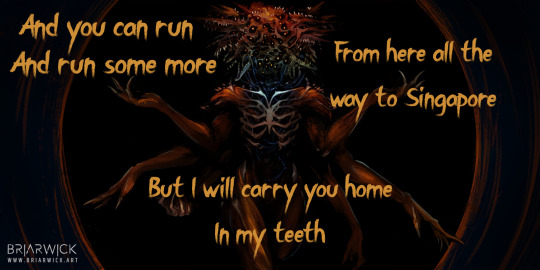
Grendel's Mother is, from beginning to end, a song about resurrection beasts (which has some interesting implications about Beowulf as an intertext). Just listen to it, seriously. Artist credit, as per watermark, Briarwick
20 notes
·
View notes
Text

your honor, my son may have eaten 30 warriors in their sleep, but in his defense, he's a growing boy
7 notes
·
View notes
Text
Fifteen years ago last month, I read Beowulf with my English class. The teacher said for extra credit we could come up with our own illustrations of Grendel. I created Grendel below in oil pastel and ended up using it in my AP art portfolio.

I recently decided I should do a follow-up of Grendel's mother. Here it is from when I finished it a few months ago: the original Karen from the black lagoon.

(note: this version of the scan didn't get the bottom: she's standing on the threshold of Heorot with a dead warrior lying at her feet)
Happy Halloween!
5 notes
·
View notes
Text

in the great hall you drink red wine
#john darnielle fan art#john darnielle#the mountain goats#zopilote machine#grendel's mother#artists on tumblr#gosh darnielle
10 notes
·
View notes
Text
" you can stand up, or you can run
you and i both know what you've done
and i will carry you home
i will carry you home
i will carry you home in my teeth "
#the mountain goats#tmg#grendel's mother#zopilote machine#lyrics#lyric posting#i hardly ever post about this album but i love it more and more dearly with the passage of time
3 notes
·
View notes
Text

Haven't drawn them in a while
15 notes
·
View notes
Text
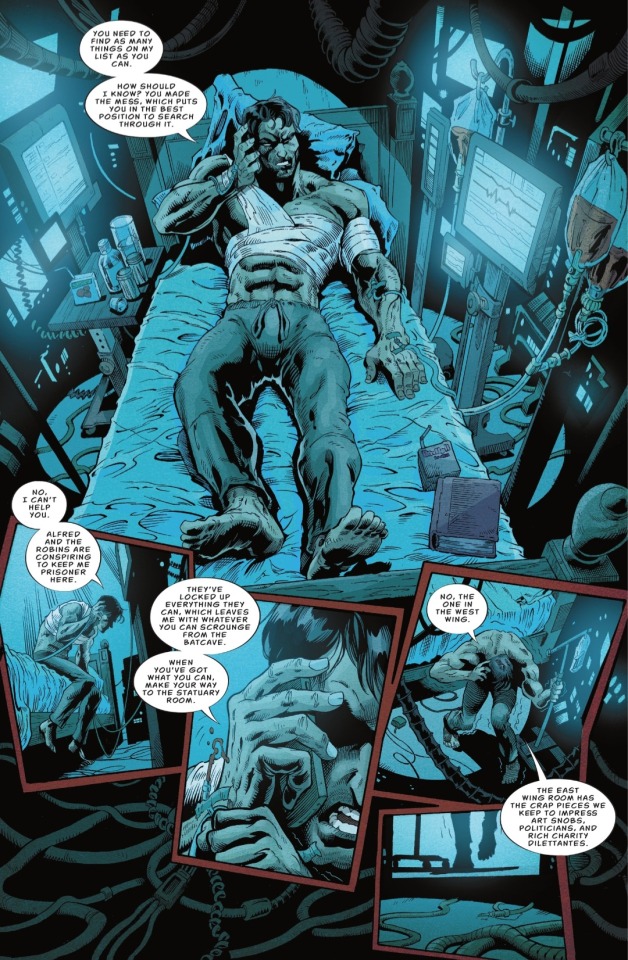


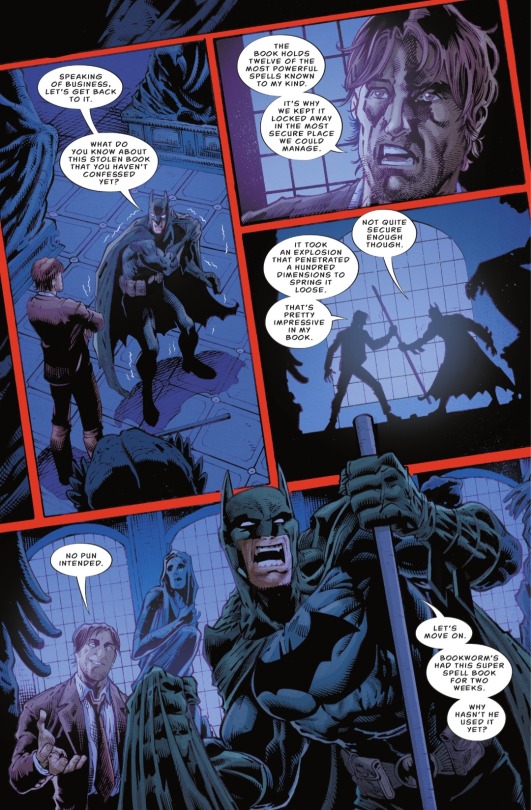

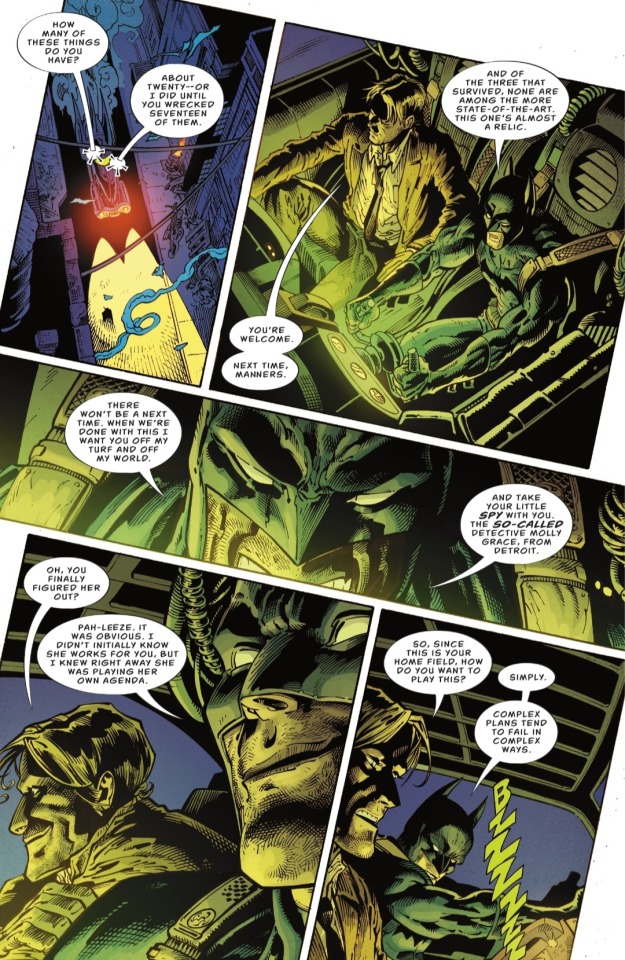
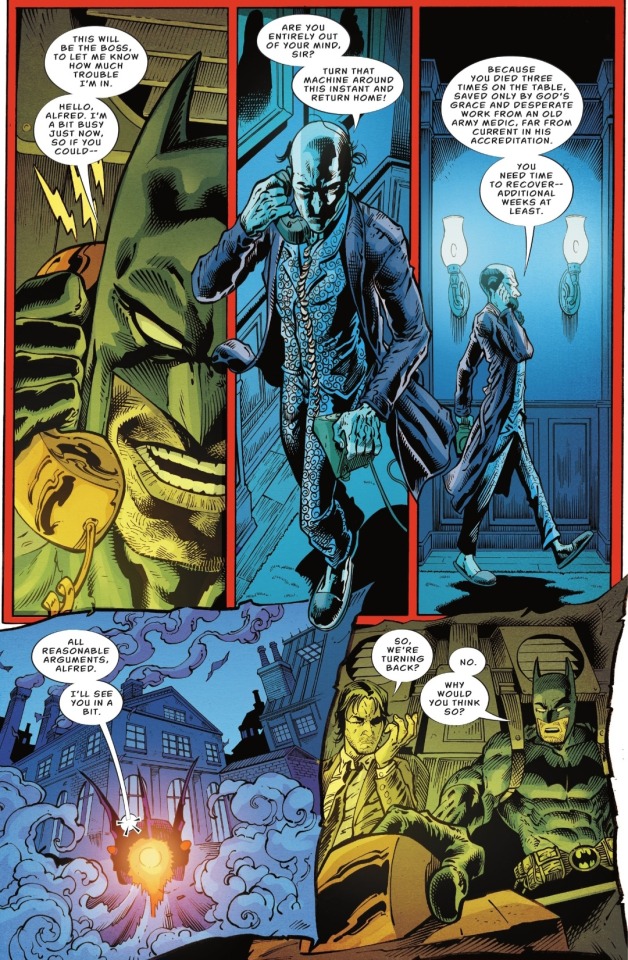
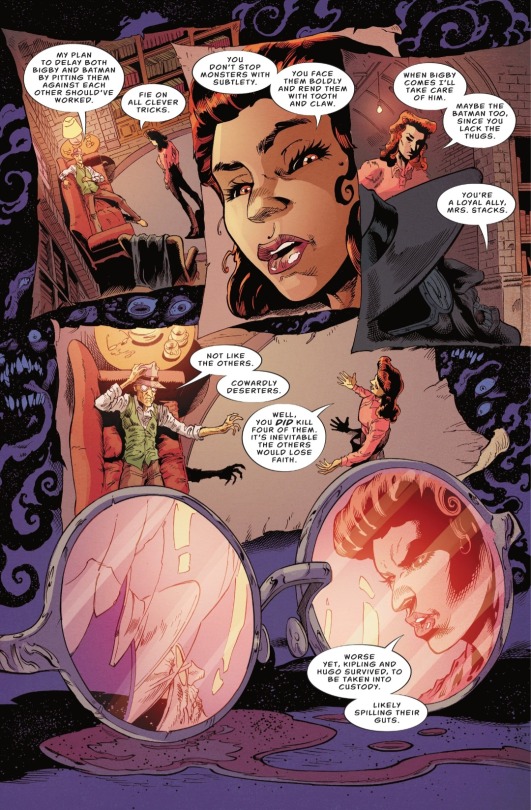
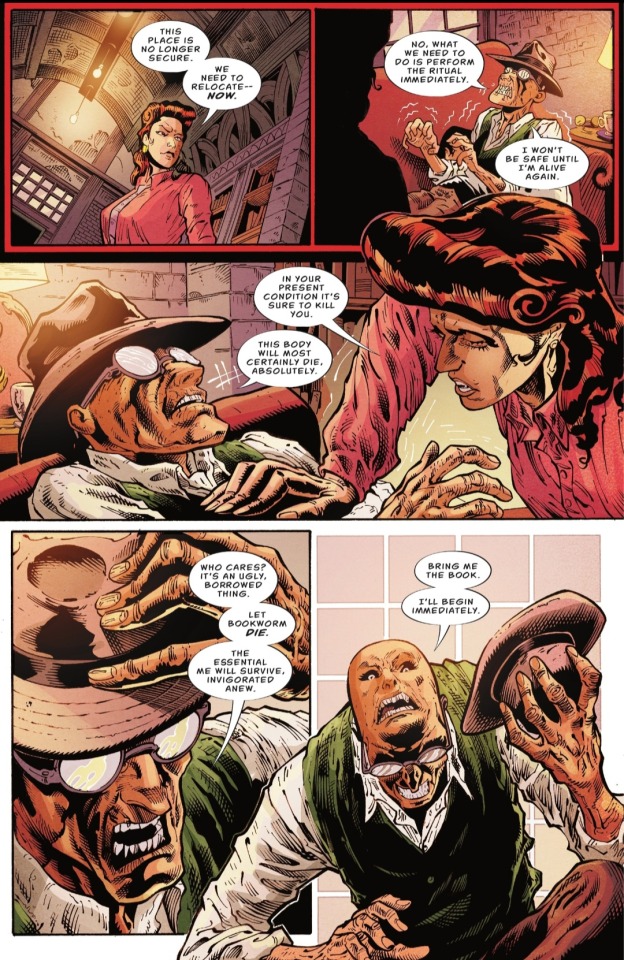
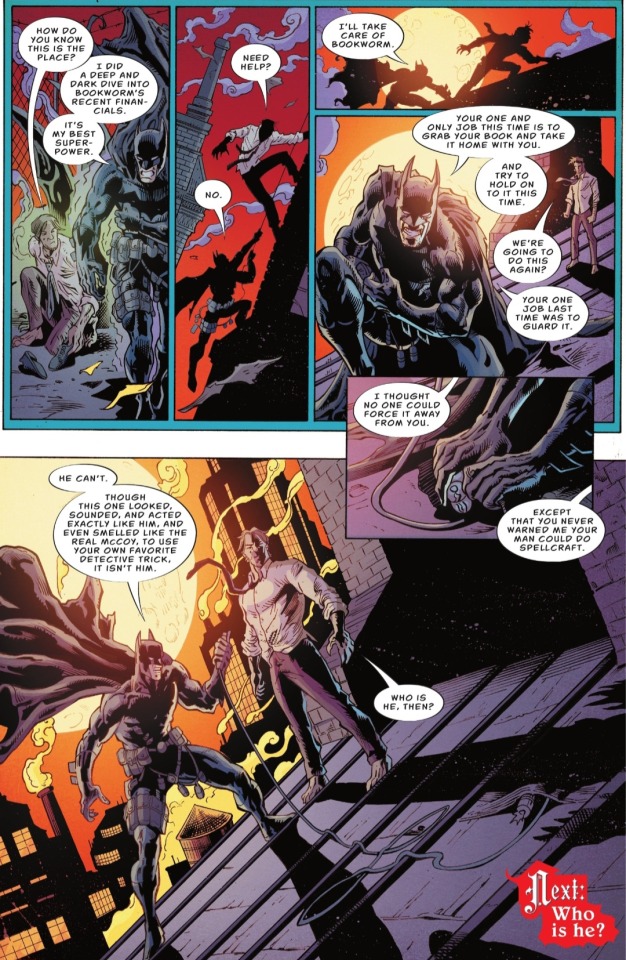
"You look like boiled hell. -Trust me, I feel worse. What did you find? -This and that. Need help? -No. If I can't do this much myself, I've no business going out. -I agree. You've no business going out tonight. Why not leave it to me?... -Speaking of business let's get back to it. What do you know about this stolen book that you haven't confessed yet. -The book holds twelve of the most powerful spells known to my kind. It's why we kept it locked away in the most secure place we could manage. -Not quite secure enough. -It took an explosion that penetrated a hundred dimensions to spring it loose. That's pretty impresive in my book. No pun intended."
Batman Vs. Bigby! A Wolf In Gotham (2021). "Chapter Five: Boats Against The Current."
#dc comics#dc vertigo#vertigo comics#fables comics#fables the wolf among us#batman#bruce wayne#alfred pennyworth#bigby#bigby wolf#bookworm#frau totenkinder#mrs stacks#grendel's mother#dc universe#dc magic
9 notes
·
View notes
Text
just a girl with one (1) braincell



#academia#Yes This Is Technically Classwork#the manuscript at least#medieval studies#medievalcore#anachronism#Grendel's Mother kinnie#grendel's mother#mearcstapa#markwalking#Aggresive Liminality#if you think I mash up too many mythos you should see actual early-medieval sources bc good GODS#they would just throw anything and everything in there#manuscript#illuminated manuscript#illumination#pen work#wip#art wip#bookbinding#<kinda#multimedia#Long Ass Project#runes#norse mythology#anglo saxon#old english#greco roman#greco roman mythology
8 notes
·
View notes